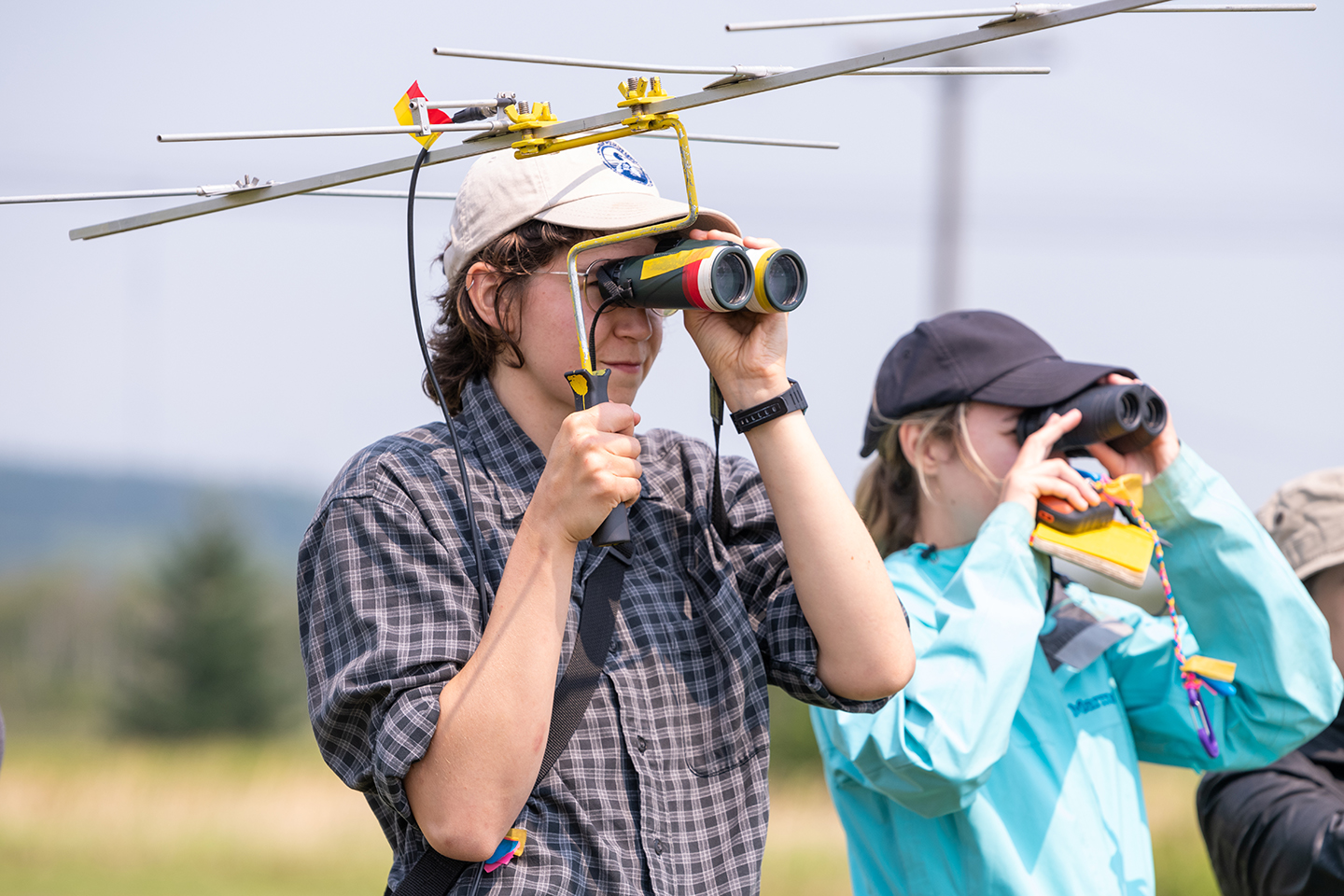Advancing nature-based climate solutions
Irving Oil has partnered with Ducks Unlimited Canada for more than 60 years and we are proud of the work that we have done together over the years to help conserve Atlantic Canadian wetlands and the wildlife that call them home.

We are equally proud to evolve our partnership as we work together to achieve sustainability outcomes that result in measurable environmental benefits to help reduce greenhouse gas emissions within Canada. We’ve agreed to work together to advance the understanding and the scientific tools needed to estimate net greenhouse gas emission reductions through wetland conservation, restoration and management. This information is critical to better quantify the role of wetlands as nature-based climate solutions and developing baseline information from which to structure national and regional carbon protocols.

Beaubassin Research Station
Located at the crossroads of the three Maritime provinces, the Beaubassin Research Station is a meeting place that brings bright minds together to collaborate on the social, cultural and environmental challenges of our region that are critical to our past, present and future.
The Beaubassin Research Station was established in 2009 through the partnership of Irving Oil, Acadia University and Ducks Unlimited Canada and it continues to advance environmental and historical research today. The site brings together students and researchers from across a network of partnering academic institutions to focus on finding practical solutions for a more sustainable future.
In fall 2021, the Beaubassin partnership was pleased to welcome the Université de Moncton, engaging students in historical and cultural research of the land and its people.

Multi-disciplinary research today focuses on:
- Environmental impact – The dynamic tidal environment supports the study of coastal erosion, sedimentation and sea level rise.
- Wildlife habitat – Situated on marshlands at the head of the Bay of Fundy, it is an ideal place to study migratory birds.
- Climate change – Understanding the role of wetlands as a nature-based carbon solution.
- Aquatic ecosystems – The interface between seawater and freshwater offers an abundance of opportunity to study fish movement, populations and species richness.
- Historical and cultural significance – With its significant role in history, it is a unique place to study culture, community, language and archaeology.

Little River Wetland
In the 1970s, Irving Oil partnered with Ducks Unlimited Canada to conserve the Little River marshland adjacent to our Saint John refinery. Today, the 246 acres provides a protected home to wildlife including fish, deer, eagles and waterfowl. The Fox Trail, running through the Little River Wetland, allows our employees on site to get closer to nature.

Little River Restoration Project
Irving Oil partnered with Dillon Consulting on a Little River Restoration Project. In the summer of 2016, approximately 1,060 cubic metres of contaminated sediment was removed from Little River using an environmentally friendly floating suction dredge. Approximately 600 cubic metres of cobble and boulder clusters were placed on the bottom of Little River to replace the dredge sediment. Following the sediment replacement, monitoring was implemented at Little River, as well as the addition of enhancements to improve aquatic habitat. The monitoring examined items such as fish assemblage, tidal movement, field water quality parameters and benthic organisms within Little River. The results were very favourable and showed a high abundance and diversity of fish in Little River.
